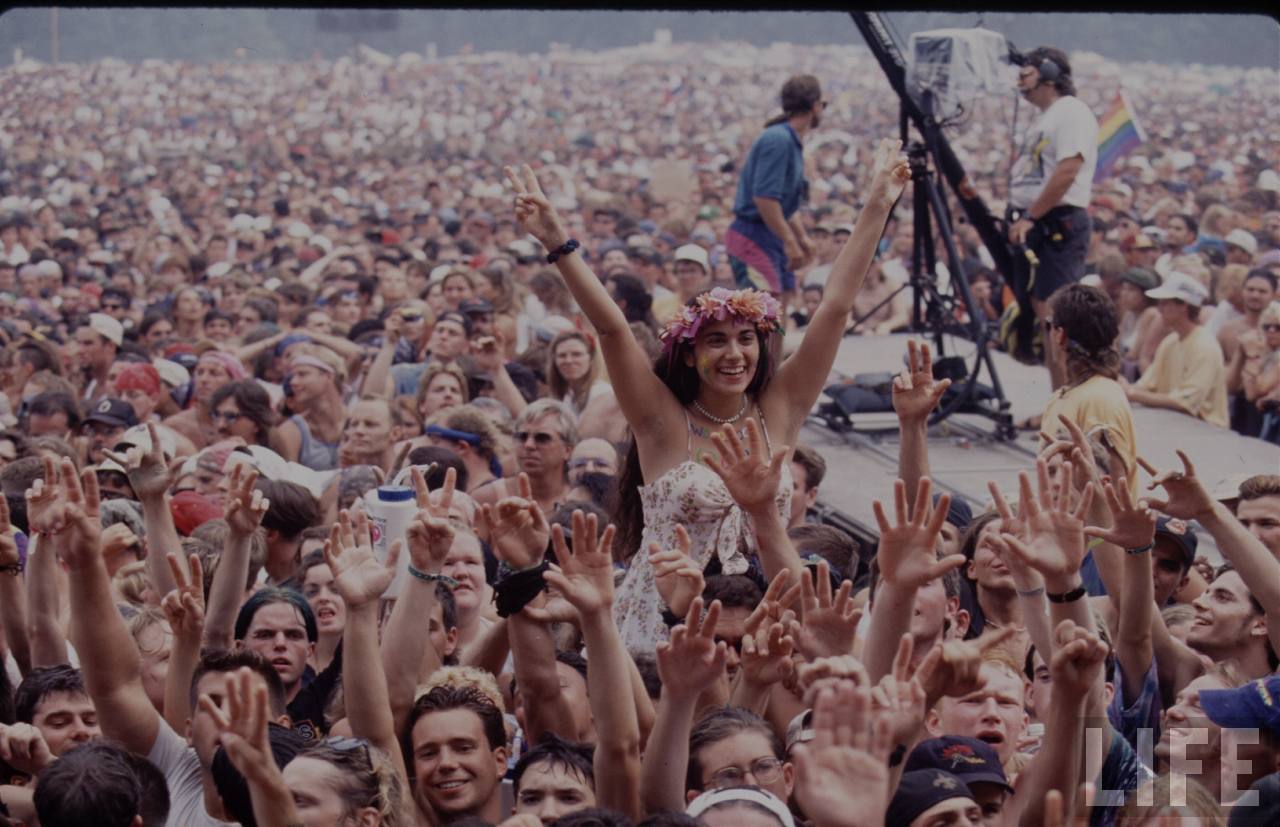Music is an
important and integral part of humanity. This form of artistic expression seems
to connect deeply to us on many different levels, and has throughout recorded
history. So much so that the way in which we regard music often takes on
religious proportions. Often the act of listening to music is ritualistic in
nature. According to Livingstone, through the use of chanting, rhythms and
other mediums, ritual is “symbolic in the most profound sense, for it ‘brings
together’ the mind, the body, and the emotions, and at the same time, binds us
to a community of shared values” (99). Music acts similarly, using comparable
methods of stimulation to achieve this end.

This phenomenon can often be seen at concerts. While we can all simply whip out our iPod and listen to whatever we want, the ritualistic nature of concerts is something inherently attractive about the experience. By transforming our inhibitions and behaviors, concerts serve as a ritual space that changes our identities. Even further, it speaks to one of the most basic human desires of belonging and being an accepted part of a group or community. Knowing the lyrics and singing along with strangers is a very powerful tool of “belonging”. This is taken to another level at large music festivals, where masses of people flock to the festival areas, often sleeping in tents and creating temporary societies. For example, the original Woodstock music festival in 1969 drew hundreds of thousands of people. While it was a “music festival”, it really was about much more than just music. It represented the “hippy” culture of the time, and provided a space where a community could come together and in a way “worship” their beliefs. For individuals going to that event, it provided a unifying experience that defined who they were, in the same way that religion and ritual does. By joining together and singing ballads of peace and love, the festival turned into a sacred ritual space. This is how concerts, and music as a whole, become both religious and ritualistic.

No comments:
Post a Comment